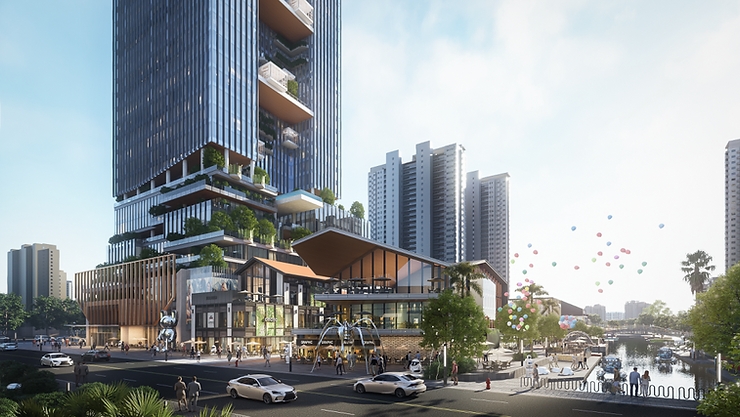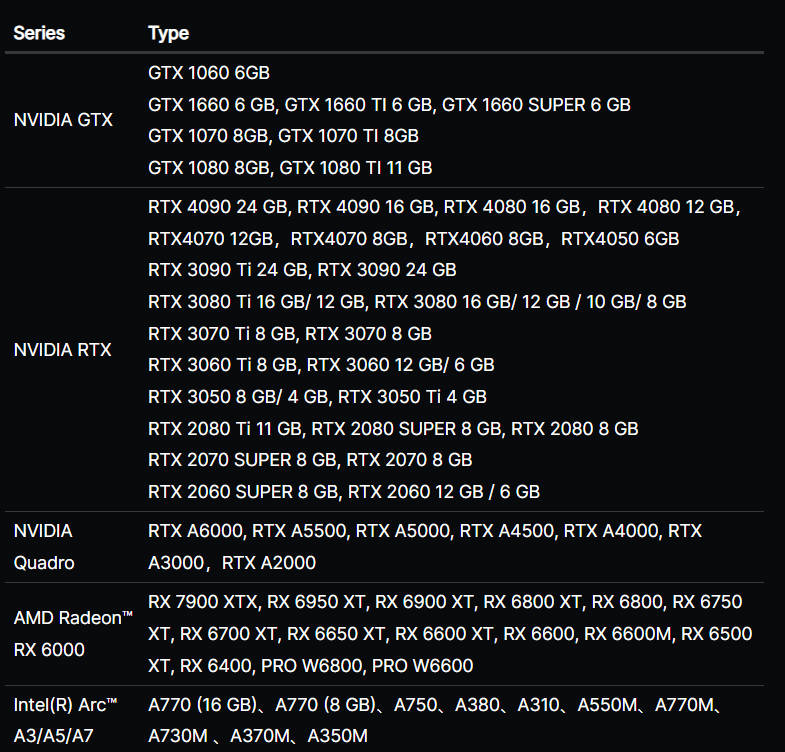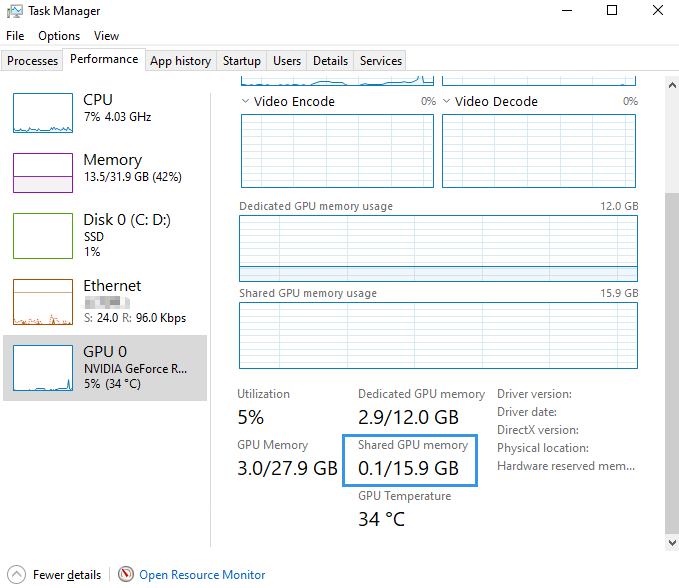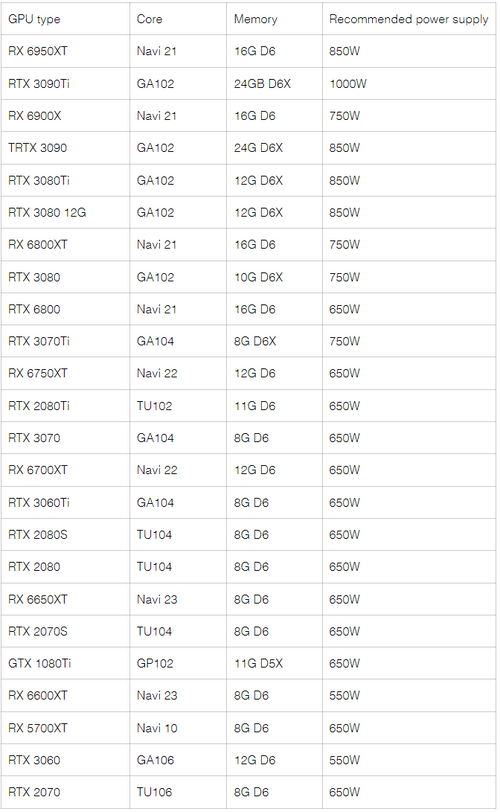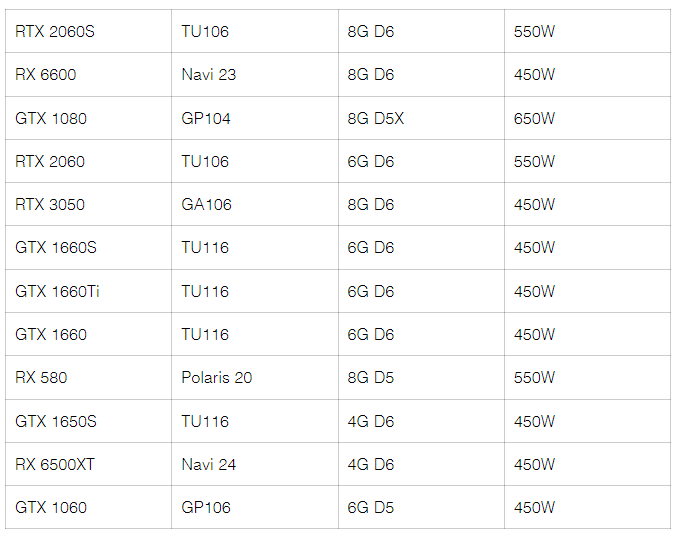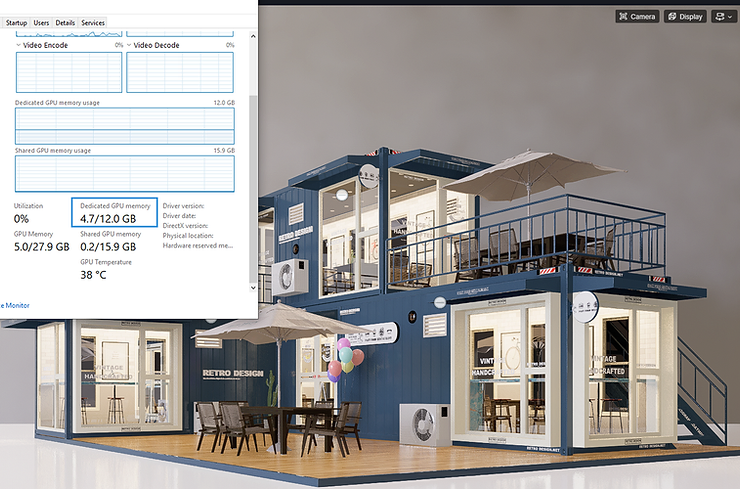System Requirements for D5 Render
Everything about system requirements for D5 explained
To guarantee real-time rendering speed and quality, a lot of factors are involved. Apparently graphics cards play a key role, and VRAM can also affect D5's performance in handling complex scenes. Of course, there are a lot more which will be covered in this article.
If you're just starting with D5 and don't know if it runs on your PC, needing hardware upgrade advice, or just curious about minimum&recommended requirements, find out what you need in this blog.
Why are there certain requirements to run D5?
D5 Render is a GPU-based renderer that is built on DXR and ray-tracing technology.Ray tracing is a fundamental part of D5 that enables GPU to render complex models and scenes with physically accurate shadows, reflections, and refractions. It requires both GPU and the operating system to have corresponding modules.
While D5 Team has kept working on optimizing its algorithm to make it compatible with various ray tracing GPU, it has minimum requirements for graphics cards and system configuration to bring its capacity into full play.
Requirements
Graphics Card
A graphics card that supports ray tracing is essential, because GPU performance plays a significant role in both preview mode and the rendering output. However, a high-end card isn't necessarily needed. While graphic cards with higher performance tend to bring out more potential of D5, some most basic ones can also handle D5 well.
Here is the list of currently supported GPU for D5:
- Minimum requirement: Nvidia GTX 1060, Intel Arc 3, AMD RX 6400
- Recommended Requirements: Nvidia RTX 3060 (Ti)
- Optimal Requirements: Nvidia RTX 3090
CPU (Central Processing Unit)
CPU rendering uses all the cores of CPU throughout the rendering process. Multiple cores allow PCs to run multiple processes at the same time with greater ease, increasing your performance when multitasking (for example: loading assets and moving the camera) in D5.CPU is mainly responsible for D5's interaction and game thread, such as loading scene files, analyzing material maps, processing meshes, and so on. It also influences the location calculation of scattering tools and resource management of the scenes. In short, a high-performance CPU contributes to smooth interactivity and increases work efficiency when rendering.
- Recommended Requirements: Intel Core i5-11400, AMD Ryzen 3 5300G
- Optimal Requirements: Intel Core i9-13900K, AMD Ryzen 9 7950X
RAM (Random-access Memory)
RAM gives applications a place to store and access data on a short-term basis. It stores the information your computer is actively using so that it can be accessed quickly. For example, the hard drive is a warehouse where we store all data and programs on a computer, then the RAM is the studio where we work. And when we open some programs and files, we need to move them from warehouse to the studio. Therefore, bigger RAM enables the computer to handle more work.
In addition, when the video memory of GPU is out of usage, Windows system will convert about 50% of RAM to video memory (Shared GPU memory) as a complement. That's why some users see a nice overall performance of D5 when they are using RTX 3050 4GB, with 32GB of RAM.
GPU Memory=Dedicated GPU memory (VRAM) + RAM*50%
- Recommended Requirements: 32GB (16*2), DDR4
- Optimal Requirements: 128GB (32*4), DDR5
Power Supply
For power supply, there isn't strict requirement to meet as long as yours keeps providing power for graphics cards and other components stably. Too low a Wattage may cause your PC to automatically reboot when rendering or previewing in D5 Render.
Don't worry. D5 has added Auto-save feature to help you with such problems.Here are some recommendations for power supply:
Operating System
- Minimum requirement: Windows 10 V1809
D5 Render is partially based on DirectX Raytracing technology(DXR) of Microsoft, which sets the minimum operating system requirement for D5 at Win10 v1809.
What is DXR?
"DirectX Raytracing (DXR) is a feature introduced in Microsoft's DirectX 12 application programming interface (API) that implements ray tracing, for video graphic rendering. DXR was released with the Windows 10 October update (version 1809)"
Graphics Card Driver
Please upgrade the graphics card driver to the latest version.
Timely graphics driver updates usually fix certain bugs, or optimize certain algorithms for the hardware, ensuring the maximum performance while preventing crashing of D5.
FAQ
Which do I need more when rendering? RAM or VRAM?
VRAM, or Video Random Access Memory, is the dynamic memory used specifically by the Graphics Processor (GPU) or integrated graphics. It is tied to video-related tasks like rendering. A large amount of VRAM tends to help a lot when it comes to rendering because it accelerates the process, and is the priority resource when rendering or previewing in D5. The amount of VRAM usage has a huge impact on the
resolution and
smoothness when you're in preview mode. To see how much VRAM is being taken up while you're rendering, you can download
GPU-Z for relatively accurate information. However, taking up as much VRAM as possible doesn't necessarily help with the software's performance.
RAM is also used when the video memory is
used up, but it's much slower mainly because RAM is placed much farther away from the GPU Core compared to VRAM which is right on the Graphic Card’s PCB.
Does D5 Render only run on RTX cards?
No. D5 is not RTX-only software.
You can run D5 on NVidia, Intel, AMD and other graphics cards as long as they support Ray Tracing technology.
At the very beginning, there were specific optimizations on Nvidia ray tracing GPU (GeForce RTX and Quodra RTX) in part of D5's algorithm, because compared with GTX series, RT Core can boost the performance of real-time rendering. However, as D5 Render keeps updating and iterating itself, now it becomes more adaptive and compatible. It works well with other types of ray tracing GPU now, like AMD Radeon RX series. For graphics cards that don't support ray tracing, D5 Team is working hard to bring more possibilities to D5.
When will you release a Mac version of D5 Render?
We understand a lot of users are waiting to render with D5 on their Mac, but at the moment there exist some technical issues. Apart from support for ray tracing, D5 is based on Windows DirectX12 (DX12) technologies, which conflicts with Apple's macOS operating system.
Therefore, we don't have an estimated date for D5 on Mac, but we do have the plan to come to more Mac users. Let's wait until that day!
Is GTX 1050 or 1650 supported by D5?
Unfortunately, no, because they do not support DXR (DirectX Raytracing) in Microsoft's DX12 due to performance reasons. We're planning to optimize our algorithm so D5 becomes compatible with them in the future.
RTX 3060 vs 3060Ti, which do you recommend?
From the Benchmark results submitted by D5 users, we can see that in this scenario, 3060Ti's performance is about 35% higher than 3060, and it is in line with the market evaluation as well.
However, 3060 comes with 12 GB VRAM, so it's capable of loading a large scene file (aerial rendering, urban planning visualization).
Normally, opening a common file like a residential building in D5 will not occupy too much VRAM, so both 3060 and 3060ti can be a good choice for you to run D5. Taking cost into consideration, you can decide according to your budget.
Benchmark
To see more statistics for your reference, you can go to
Benchmark and see test results from D5 users. You're also welcome to run this tool yourself and see how your hardware ranks alongside others when running D5 Render.

